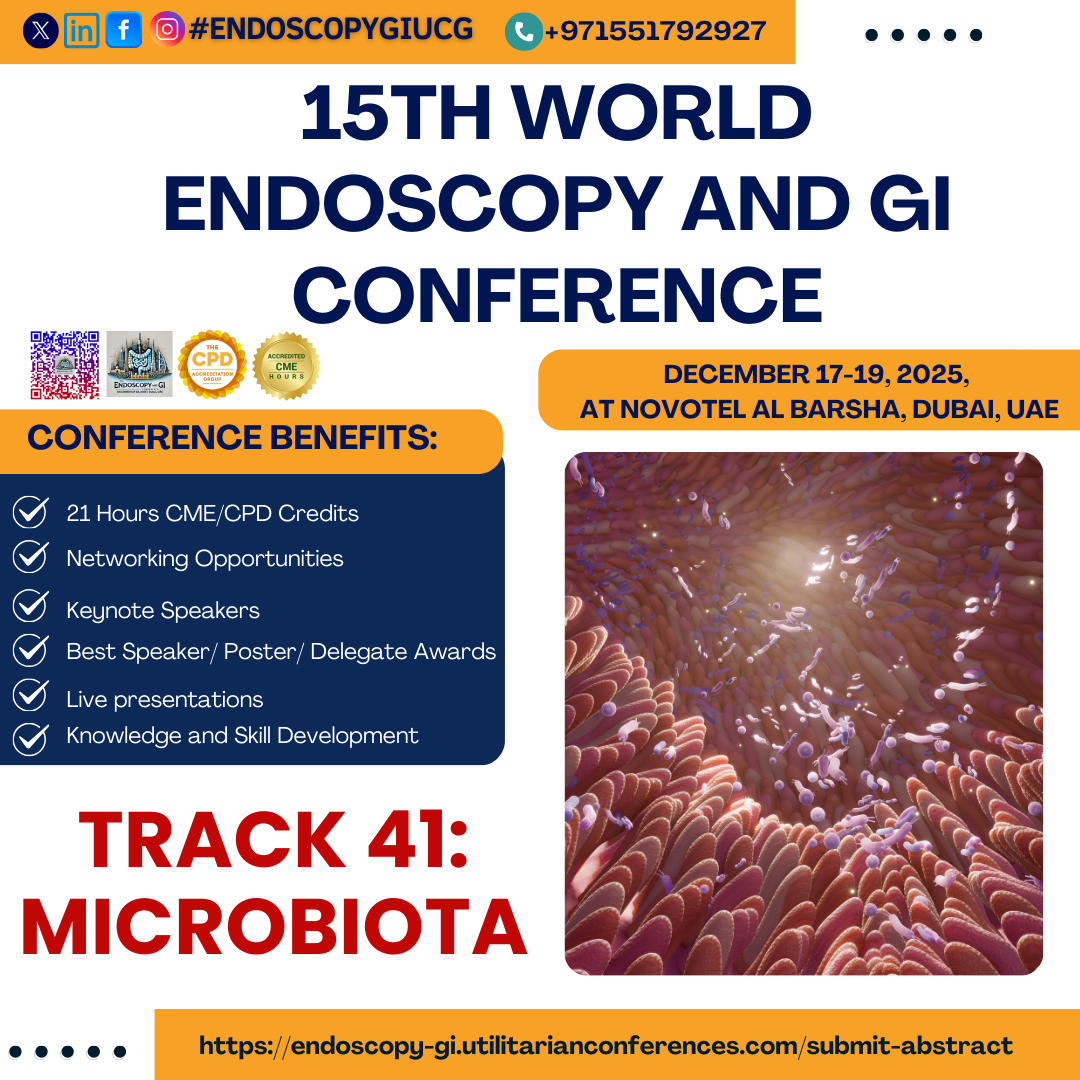



Endoscopy is a medical procedure that allows healthcare providers to examine the...

The gastrointestinal (GI) system, also known as the digestive system, is a complex...

The human microbiota, comprising trillions of microorganisms living in and on the body, plays a critical role in maintaining health and influencing disease progression. Recent research has uncovered the dynamic interactions between the gut microbiome, host immunity, metabolism, and even neurological functions. Track 41: Microbiota will spotlight these exciting developments and their clinical implications.
This session will explore the complex relationship between the gut microbiota and gastrointestinal health. Discussions will highlight how microbial balance affects digestion, absorption, and intestinal immunity, while also addressing conditions such as inflammatory bowel disease (IBD), irritable bowel syndrome (IBS), and colorectal cancer.
Beyond digestion, the microbiota influences multiple body systems, including the brain, liver, lungs, and skin. Experts will present evidence on the gut-brain axis, the role of the microbiome in metabolic syndromes like obesity and diabetes, and its impact on immune-mediated diseases.
This segment will focus on cutting-edge microbiome-based diagnostics and therapies. Key topics will include the application of next-generation sequencing, metabolomics, and bioinformatics in microbiome analysis, as well as novel therapeutic approaches such as fecal microbiota transplantation (FMT), probiotics, prebiotics, and postbiotics.
Clinicians and researchers will share insights into how microbiome science is being translated into real-world practice. Case studies, ongoing clinical trials, and personalized microbiome-based interventions will be discussed to bridge the gap between research and patient care.
Track 41 will provide a comprehensive platform for understanding the microbiota’s expanding role in human health and disease. By integrating basic science, clinical research, and therapeutic innovations, this track promises to advance knowledge and foster collaborations in the rapidly evolving field of microbiome science.